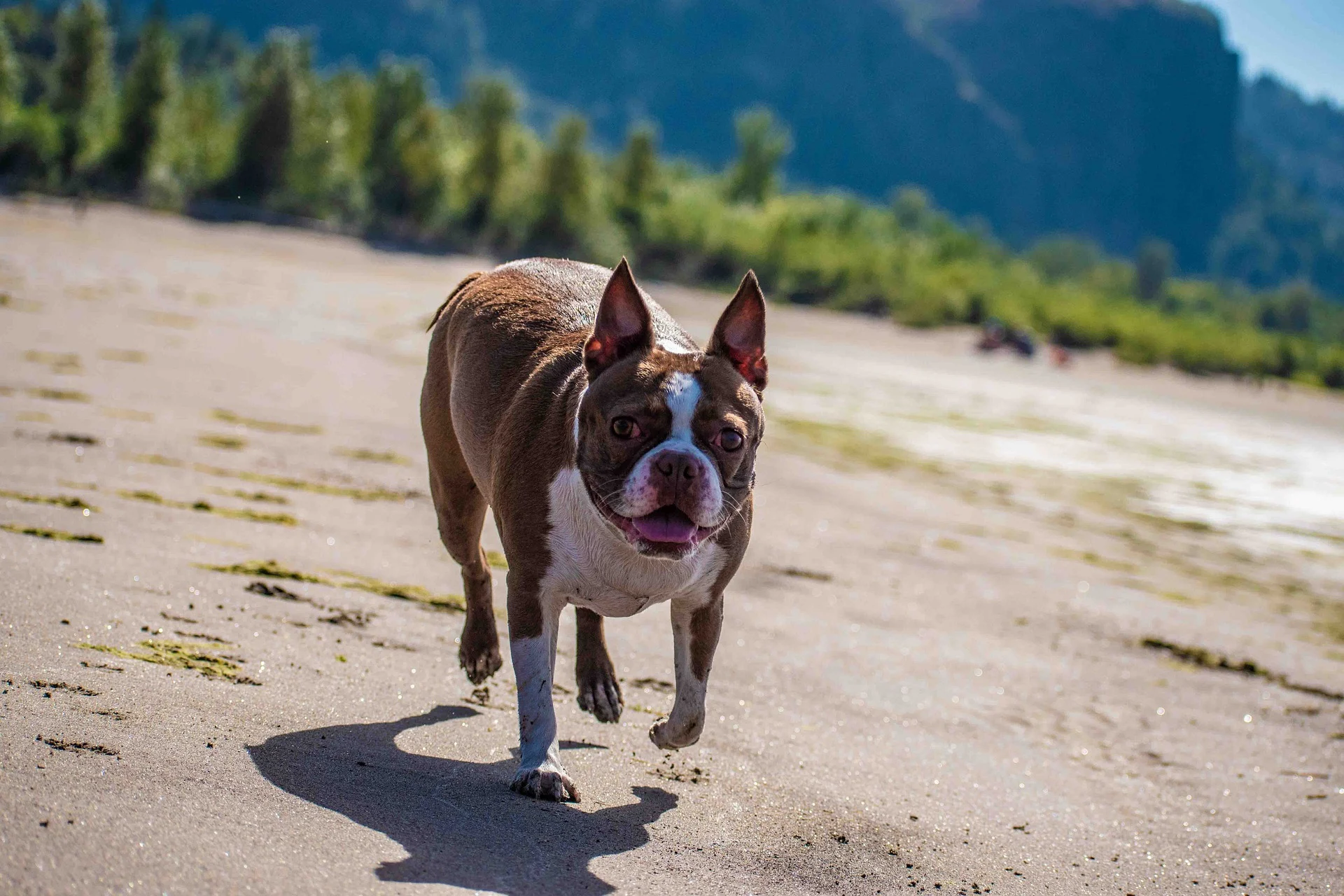The Boston Terrier is considered the national dog of the USA. Mating English bulldogs with the – now extinct – Old White English Terrier formed the basis for the emergence of the breed towards the end of the 19th century. French bulldogs are also said to have been crossed. But what are the Boston Terrier colors? What variations are out there? Let’s find out together!
Boston Terrier
The first breeding attempts took place in the USA; In 1891 the dog received its official breed name from the American Kennel Club. Because of their impeccable manners, they are nicknamed “The American Gentleman!”
When it comes to their size, they are pretty small dogs. However, it’s important to state is that they come in three weight classes. First class weighs under 15 pounds, then 15 to 19 pounds, and the third weighs 20 to 25 pounds. When it comes to their height, they typically stand 12 to 17 inches tall at the shoulder.
Boston Terrier Colors
Boston Terrier colors are (each with white markings):
- Black and White
- Black Brindle and White
- Brindle and White
- Seal and White
- Seal Brindle and White
They often also have white patches that are set up to form a certain type of alignment.
A Boston Terrier has a short, muscular body with a broad chest.
Boston Terriers dogs have a square jaw and a shorter muzzle. Their muzzle is also round and wrinkle-free. The eyes of Boston Terriers are large and round, and also set wide apart. They are also tucked in the skull. Boston Terriers have small and erect ears,
Personality
The Boston Terrier is an agile, lively and at the same time an extremely cheerful, lovable dog. In short, the Boston Terrier makes a great companion with a lot of charm and character. This is why he is also called “American Gentleman”. But, sometimes they tend to be very stubborn and hyperactive, and they often clown around.
He inherited the friendliness and affection towards humans from the bulldogs. But, they also tend to be a bit reserved with strangers, so early socialization is important. This dog is loyal and attached to his family, and love to spend time with their owners.
Because they tolerate everything, the Boston Terrier makes an excellent playmate for children. They adore children but will be great companions for people of all ages. Besides that, their size and lively, affectionate nature make the Boston Terrier a great family pet!
The Boston Terrier is ideal as a family and companion dog. He loves long walks and intellectual activities such as intelligence and search games as well as retrieving.
With adequate workload and regular opportunities to run free, the Boston Terrier can easily be kept in a city apartment. Its short coat is very easy to care for: occasional brushing with a soft brush is sufficient.
Health
As a brachycephalic dog breed, the Boston Terrier also has to struggle with the characteristic health problems associated with the shortened nose and the rounded skull shape.
These include breathing problems, eye problems, and labor difficulties, among others. The more pronounced the brachycephaly, i.e. the shorter the nose and the rounder the shape of the skull, the more severe the health restrictions are usually.
Patellar luxation (the kneecap slipping out of its guide) occurs occasionally in the breed. Breeding animals are usually examined for this.
Eye diseases such as progressive retinal atrophy (PRA; progressive death of the retina in the eye), retinal dysplasia (RD; malformation of the retina) or cataract (cataracts) also occur occasionally in the Boston Terrier.
In some animals, vertebral malformations such as to find wedge vertebrae. Depending on the degree of severity or the characteristics of the wedge vertebrae, there is an exclusion from breeding.
The average life expectancy is around 12-15 years.
Exercise
Boston Terriers are simple dogs, they don’t need much exercise at all. Of course this doesn’t mean they don’t need any exercise at all. You definitely need to take them out on several walks a day, but they can be kept short. Also remember that they can’t handle extreme cold or heat. Indoors they will be calm and will usually just chill on the couch.
They are very sensitive dogs as well, which means they will also be sensitive to your tone of voice. Never yell at them, and please be careful how you discipline your Boston Terrier. According to experts, training should be motivational. Try and use positive techniques such as food rewards, praise, and play to teach them.
While you’re here you can read more about Boston Terriers:

